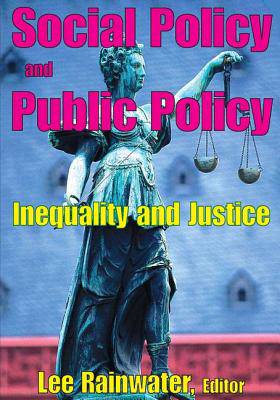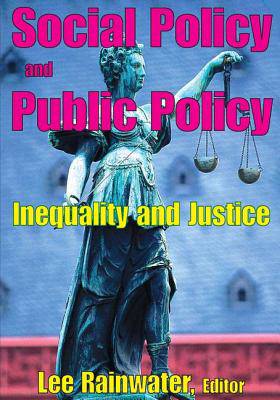
- Retrait gratuit dans votre magasin Club
- 7.000.000 titres dans notre catalogue
- Payer en toute sécurité
- Toujours un magasin près de chez vous
- Retrait gratuit dans votre magasin Club
- 7.000.0000 titres dans notre catalogue
- Payer en toute sécurité
- Toujours un magasin près de chez vous
Description
This classic volume was originally designed as an introduction to social science perspectives on a broad range of social issues in American society, specifically the complex social problems of the 1960s. Because the volume is structured as a survey, it is neither exhaustive or defi nitive. It does provide a wide range of information about these problems, as well as the many diff erent policy initiatives that were developed to cope with them. Readers can learn a great deal about the common themes, predilections and quandaries that characterized United States responses to the complex problems of the 1960s and the patterns of inequality and injustice prevalent at that time.
The essays were selected to cover the range of substantive problematic issues of the period, the social science perspectives that were brought to bear on them, and the range of social science methodologies used. Finally, the selections emphasize the contributions that can be made to understanding social problems by intensive and rigorous social science research.
Journalists and popular writers use a common sense approach to their study of social problems, and the results are often imaginative and incisive. Th e tools of social scientists produce information and analyses that contribute far more to our understanding than even the most insightful journalist can achieve. Th e selections in this volume highlight the deeper and more fundamental understanding of social issues that can come from rigorous analysis of government statistics, and from special sample surveys, from in-depth ethnographic studies.
Spécifications
Parties prenantes
- Auteur(s) :
- Editeur:
Contenu
- Nombre de pages :
- 468
- Langue:
- Anglais
Caractéristiques
- EAN:
- 9780202362533
- Date de parution :
- 01-03-09
- Format:
- Livre broché
- Format numérique:
- Trade paperback (VS)
- Dimensions :
- 178 mm x 254 mm
- Poids :
- 802 g

Les avis
Nous publions uniquement les avis qui respectent les conditions requises. Consultez nos conditions pour les avis.






